Sangre Grande craftsman wants help to keep industry alive
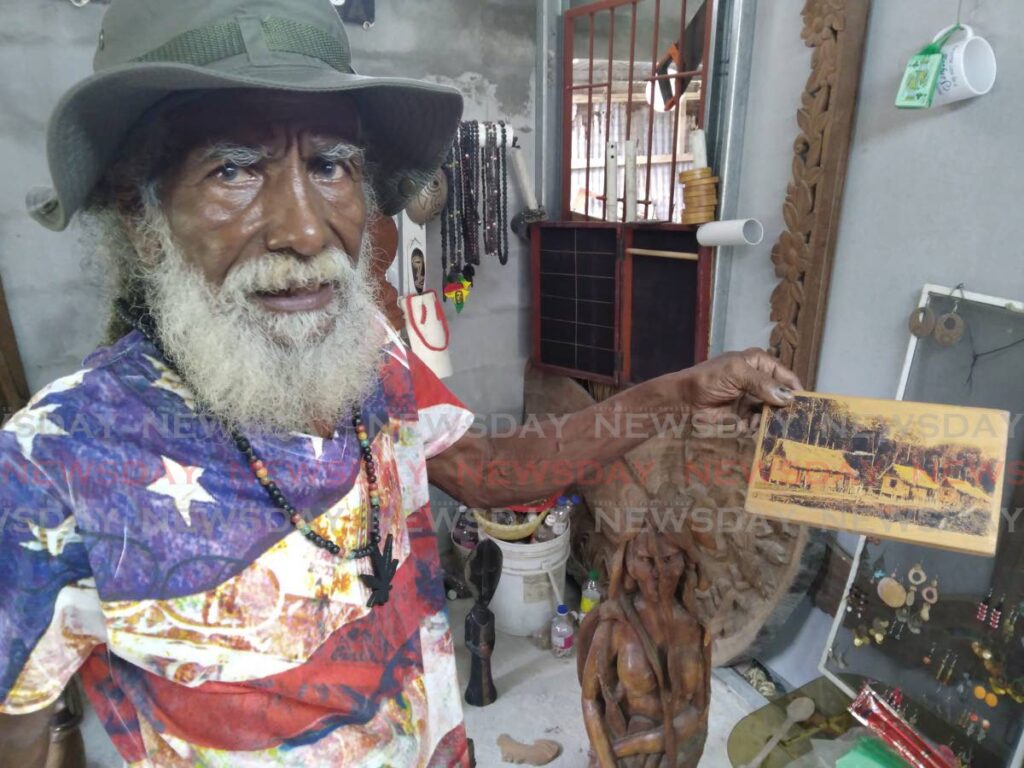
"I like to take nothing and make something."
Sangre Grande craftsman Reynold Wells, 76, has made a living with this ideology for 30 years, picking up discarded pieces of wood, PVC and stones and creating something of value.
Now retired, Wells is keen to pass on his knowledge to young people.
Adjoining his home, Wells has a museum, a small room filled with decades of his work. He is hoping the authorities see the potential in the industry and invest in it.
He said, "If yuh think yuh need to have money to start a business, yuh wrong. I like to take nothing and make something. All you need is the right energy.
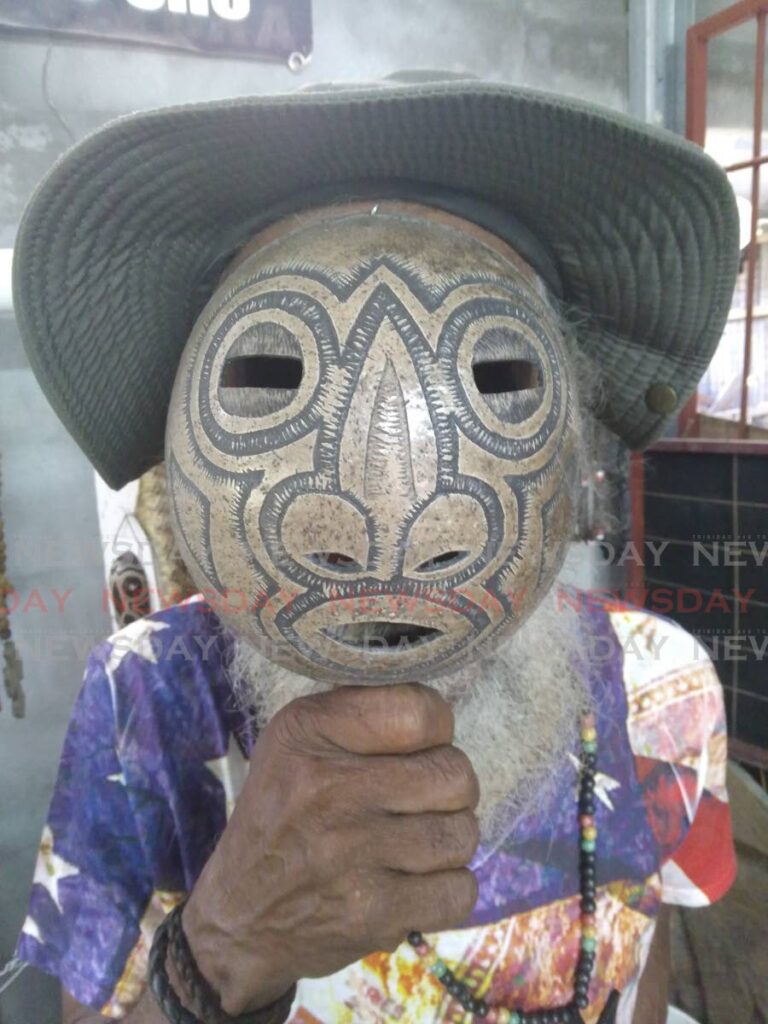
"I want Toco/Sangre Grande to wake up, because we rich, yuh know. We have all kinda seeds, gravel. We ain't want no employment. We just hadda think."
On display at the museum are African masks made from coconut shells, African-style sculptures made from wood, wooden elephants, leather purses, mirrors, necklaces, earrings and chac chacs.
He said one of the merits of getting in the craft industry is becoming independent.
"To be independent is a nice thing. If you working with me, you not independent – yuh dependent.
"But if you working for yourself, sometimes yuh lie down on yuh bed 7 o'clock and yuh now start getting yuh motivation for the day. Through the independence, a lot of things will be revealed unto you."
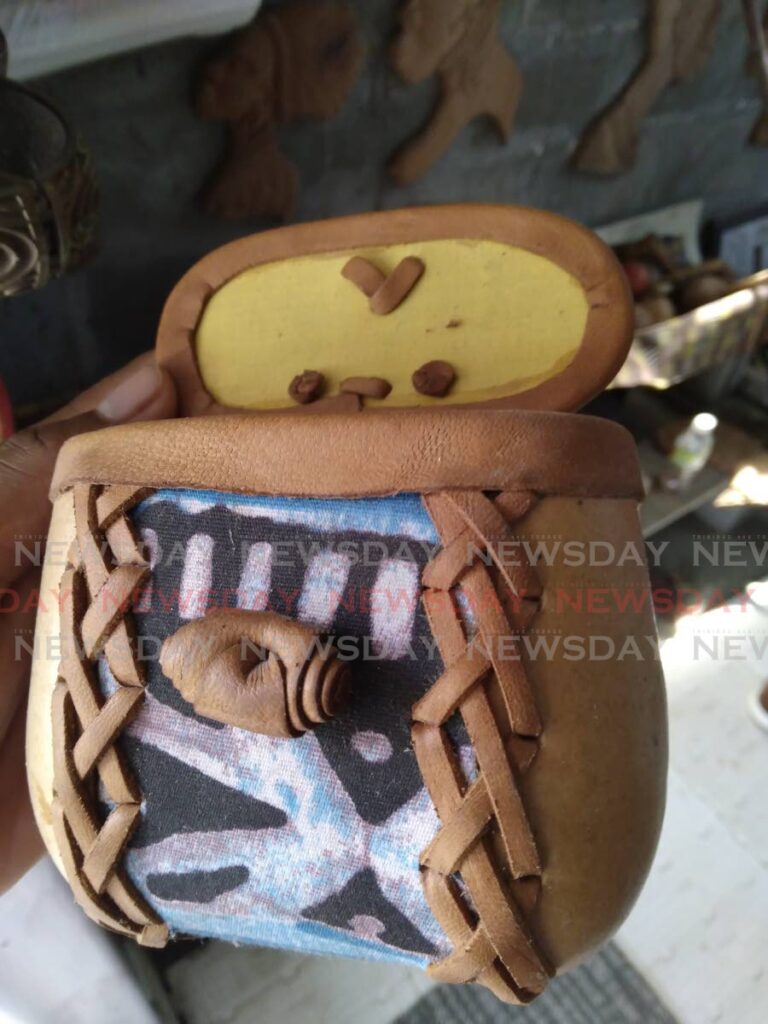
He believes the potential is limitless when one masters the skill of a craftsman.
"This could go universal. Art could make any country famous."
Wells had the distinction of six of his pieces being featured at First Citizens' Sangre Grande branch a few years ago, as part of an Emancipation Day exhibition organised by the Walke Street Emancipation Committee, headed by Montsho Masimba.
He said some of his work was also featured in an auction alongside other artistes when former US president Barack Obama visited the country in 2009 for the Summit of the Americas.
Wells said he has worked with the Ministry of Community Development's Youth Training and Employment Partnership Programme (YTEPP) programme, as well as prisoners.
"YTEPP deal with a lot of school dropouts. Golden Grove, some of the prisoners take it good, because I see some have they business on Frederick Street, doing dey lil hustle with dey craft."
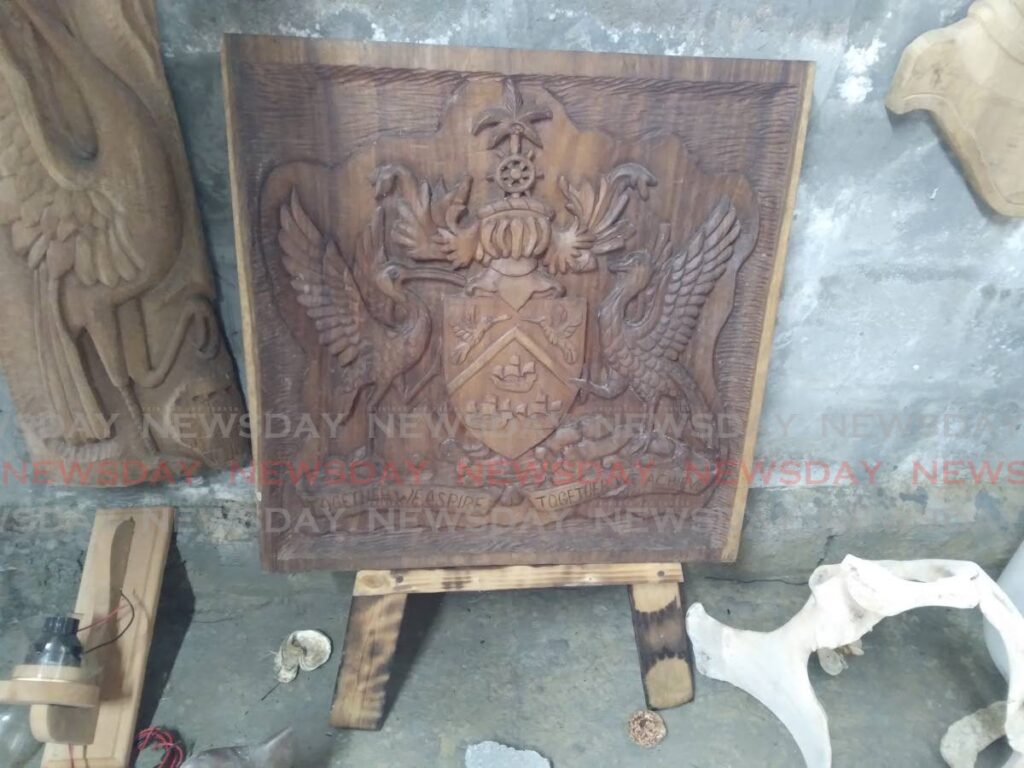
Wells said some of his craft pieces took over a year to make, particularly a 3D three-foot piece depicting a mother and her suckling child.
He said he usually works on multiple items at the same time.
"Sometimes it will call yuh and dismiss yuh."
If you try to force the crafting when your mind is not fully invested, "Yuh will end up with stitches. Yuh go bleed."
Wells recalled being commissioned once by a man in Chaguanas to make an intricate piece of wooden art. He said the man saw the incomplete version and was blown away.
"He say hold that – $1,500. Ah say, 'Nah, when ah done.'"
But a week later, Wells saw a clip on the news that the man had been murdered.
Asked how young people could be swayed from a life of crime, Wells said parents must empower their children to be independent thinkers. He said craftsmanship is about thinking.

"They never teach we to think. It have some people who can't think. It have people who don't know that they don't know. I might be teaching you something that you don't know that you don't know. I have to have patience with you to make yuh know. The average people out there right now, like they can't think.
"The easiest thing to do is something wrong. Youths were never encouraged by their parents to say no. I couldn't tell my parents no. If my mother say, 'Sit down,' I have to sit down...
"I grow my children different. Young people need to be empowered, think from small, get away the negative thought and think.
"When he go out there and he pardna say: 'Hear nah, if yuh see that easy wuk we do last night, lewwe go, nah,' – he parents never teach he to say no. He can't say no.
"So he easy to mislead. He could become a follower."
Wells said he is eternally grateful to his father, who had always pushed him to think for himself. He said comments by former president and prime minister ANR Robinson also motivated him to "have something."
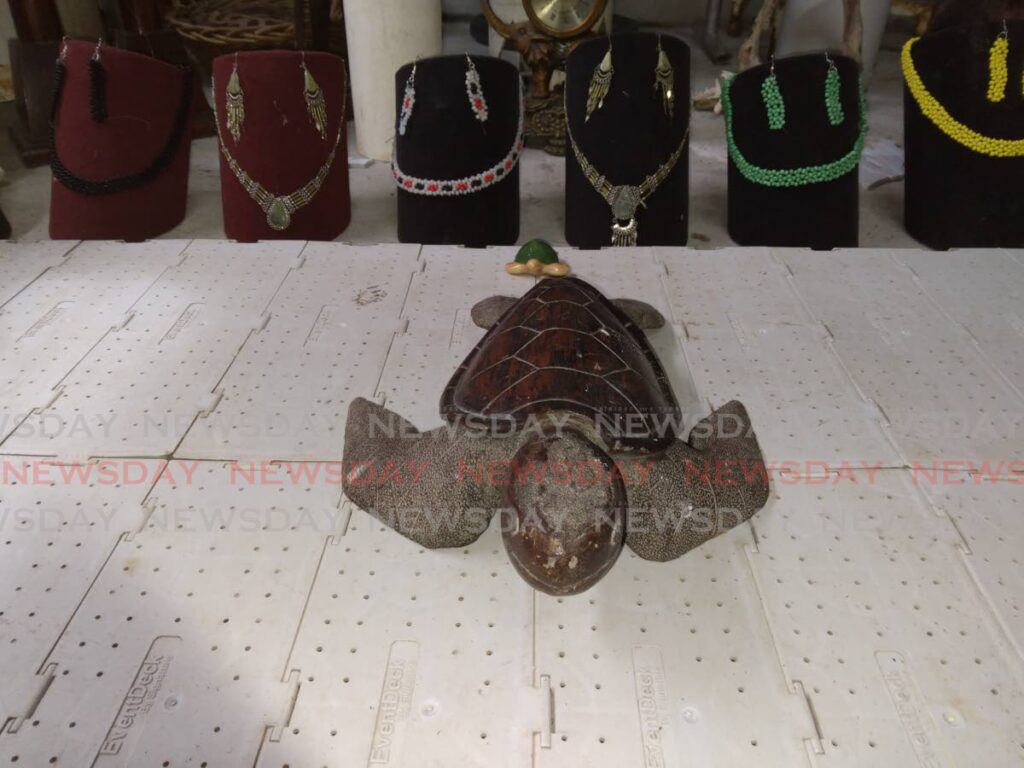
He said he also learned a lot from a Santa Cruz craftsman called Anthony, as well as Selwyn Richards from Beetham Gardens in Port of Spain.
Wells said much of his inspiration came from dreams, nature and other muses.
"The imagination eh have no boundary eh. Just the system has boundaries."
He recalled taking small pieces of wood and shaping them into elephants. In Hinduism, the elephant is a sacred animal and seen as an incarnation of Lord Ganesh. Wells said the pieces were small enough to hang on the rear-view mirrors of cars.
"I go Chaguanas, I sell a dozen in ah day for $30. Look at the small piece of wood. Yuh could make a 100 in this and sell that in ah month. Yuh eh need cash to open a business. I've been living off my hands."
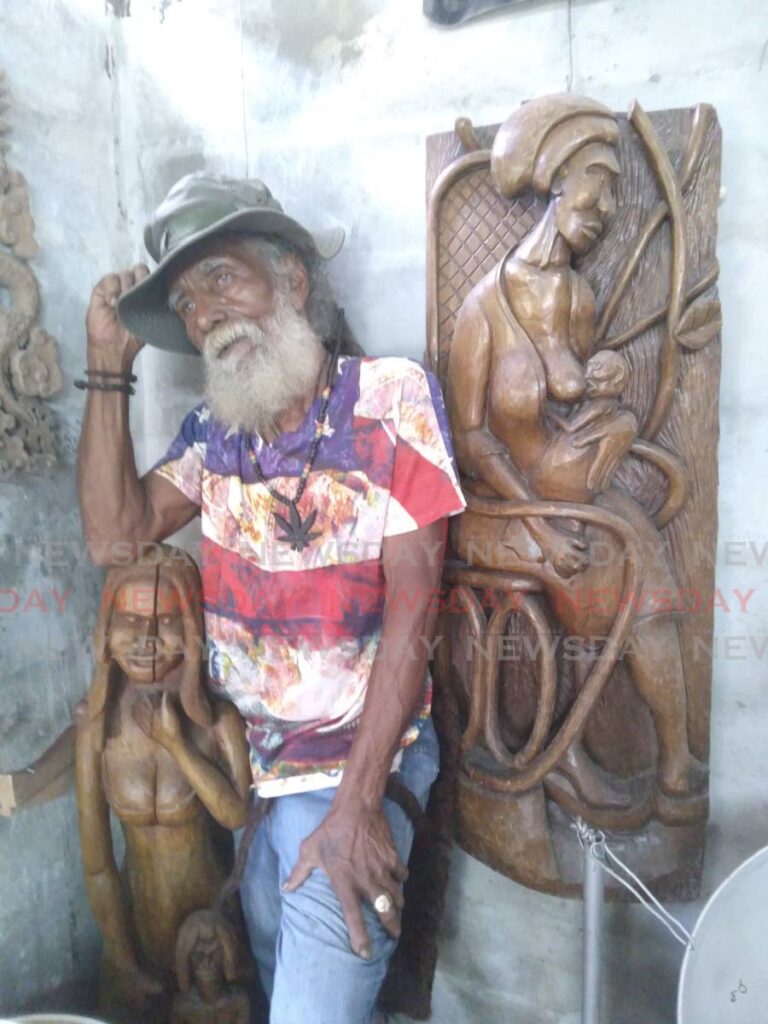
Wells said it is important to live well with everyone as one can never know when help is needed. Since his wife died on October 1, 2006, he has been able to get a plate of food from any of his neighbours.
"My lil neighbourhood, I never cuss my neighbour and them. I not living bad with my neighbour and them."
He said he is ready to pass on the knowledge to students and other groups, but structural help is needed. He appealed to the Ministry of Education and the Sangre Grande authorities to collaborate with him to keep craftsmanship alive.
Wells can be reached at 868-292-9768.

Comments
"Sangre Grande craftsman wants help to keep industry alive"